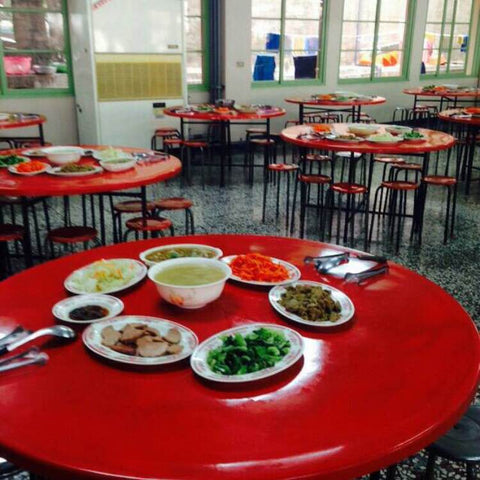
I have memories of myself walking by the many temples as a young child growing up in Taiwan on my way to school. Even though I wasn't necessarily a Buddhist, I would always say a word or two of blessings (especially on exam days) and be on my merry way, feeling more comforted. Temples are part of the culture in Taiwan, with bustling activities of visitors praying, burning incense, chanting and offering food to the deities on key lunar calendar dates corresponding with days of worship in exchange for blessings of wellness for/protection of their families and loved ones.

In Taiwan, unlike many other Buddhist countries, the monks/nuns eat vegetarian-only food with the intention of non-harming of live animals. In exchange for the many offerings (in the form of food or money) brought to the temples, vegetarian temple food is provided free of charge on certain days to the broader community visiting. In many ways, this type of food is one of the original farm-to-table food, where food grown in the gardens of the temple is cooked fresh, with the objective of highlighting its original flavor. The food resonates with the environment, where a sense of calm overtakes you upon visit. The food is light but flavorful. The vegetables often served, such as cabbage, carrots, turnip, and winter melon, encourage those eating to pay attention to the natural flavors of the food grown, contrary to the heavy sauces typical of traditional Taiwanese food.

Light herbal teas made with locally grown herbs such as the ones shown here, housed in large containers, are the perfect accompaniment; they are naturally refreshing and subtly enhance the flavors of the food. Like tea, these simple foods call for an awareness of oneself and a request to pay attention and lead a mindful life via the act of eating and drinking. In that way, this perfect marriage of food and beverage reminds us to live life simply but meaningfully, hence warranting a top spot on our list of Taiwanese foods that make you want to drink tea.


